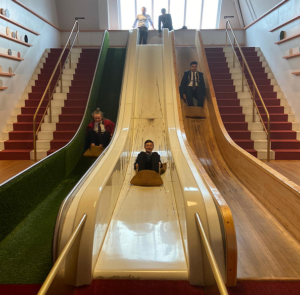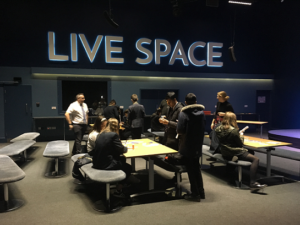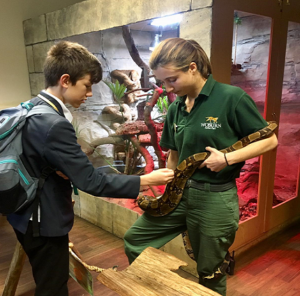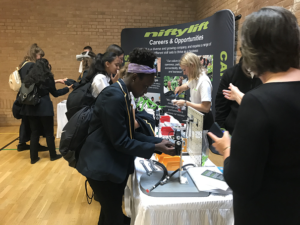Science Extra-Curricular Activities
Clubs, Programmes and Workshops
STEM Club: This is an integral part of the Science department's extra-curricular activities. All year groups are encouraged to take part in the practical aspect of Science, Technology, Engineering and Maths. The club is designed to develop skills relevant to problem solving. Students are given opportunities to participate in project work and undertake experiments which they normally are unable to do in a large classroom setting. The club runs every Thursday after school from 2:30pm to 3:30pm.
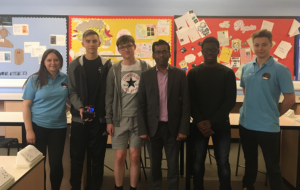
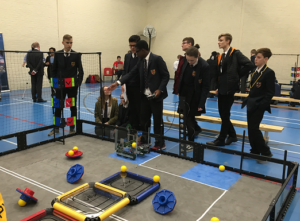
Mindstorm Robotics Challenge: Year 7, 8 and 9 students take part in the Mindstorm Robotics Challenge organised by Tomorrow’s Engineers. This is run as a club every Wednesday lunchtime. Students complete different tasks set by Tomorrow's Engineers by designing and building the robot. Biddenham has won the fastest robot in the regional competition.
The Biddenham MedSoc: The purpose of the society is to support students in exploring their interest in medicine and related fields. Exploring the hot topics of health care; practicing their presentation skills and eventually supporting them in their university application including the entrance exams, interview preparation etc. The society sessions are held every Friday at 3:30pm.

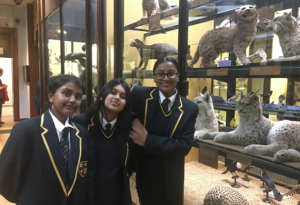
Natural History Club: Have you ever visited the Natural History Museum, London? Would you like to know more about the kind of things you would have seen there? Are you interested in wildlife, conservation, the Earth, space, dinosaurs or evolution? Then the Natural History Club is for you! Join us virtually every Thursday Lunchtime by joining the Natural History Club Google Classroom with the code: ijzl377 (current students only).
Female students in engineering: This programme is run in collaboration with Cranfield University to promote careers in Sciences, Technology, Engineering and Maths (STEM), particularly aimed at female students. At present, the programme consists of a number of talks by both students and researchers in several disciplines at Cranfield University, discussing their careers in engineering so far.
The purpose of these talks is to showcase the exciting and varied roles that engineering has to offer, and to demonstrate both conventional and non-conventional routes into engineering. We are also developing a mentoring partnership where the students can draw directly on the experience of the Cranfield University volunteers.
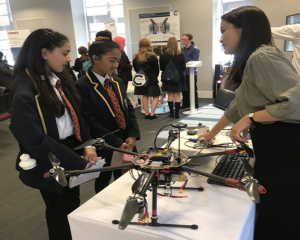
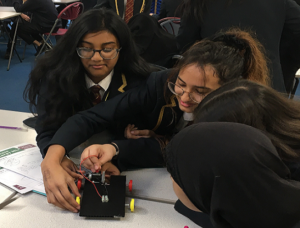
The Energy Quest Workshop: Every year, year 8 students attend the Energy Quest Workshop sponsored by Learn by Design. Students receive their own workbook to capture learning as they explore concepts of energy generation, sustainability and technologies. Students are given an opportunity to explore concepts in Physics, Design and Technology and Engineering.
Smart Materials Workshop: Year 10 students attended a STEM workshop on smart materials sponsored by RAF Youth. Smart Materials focused on materials which change shape, colour or some other factor in response to external effects, but revert back to their original form when this external effect is taken away. The workshop also included an experiment, and a kit was given to the participating class to complete the experiment.
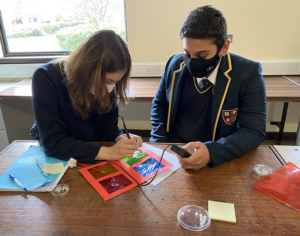
Projects, Events and Visits
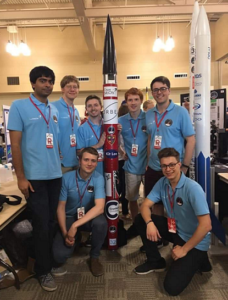
Cranfield Rocket Project: Year 12 physicists took part in a rocket project for Cranfield University. The students designed an experiment which needed to fit into a small payload attached to a rocket. The rocket, which was designed and built by the University, was to be sent into the Earth’s upper atmosphere and (hopefully) return back to the ground. However, the project was not without challenges; the equipment would have to fit into a cola can with a diameter of 5.41 cm. The year 12s were assisted by one of Biddenham’s former students to help with the project. Their idea was to design a circuit with a barometer, which measures pressure; an accelerometer, which measures speed; and a raspberry pi, a mini computer in order to measure and record both the speed and altitude of the rocket throughout its journey. The rocket was launched from Portugal in October 2022. The equipment students designed was named ‘CANDICE’.
The can-sized Atmosphere Numerating Design with Interestingly Calibrated Equipment (CANDICE), was an experiment imagined, designed and implemented by students here at Biddenham. The objective was to sense the evolution of the atmospheric parameters (e.g. pressure and temperature), with respect to the altitude, and to compare the results with both the standard atmospheric models, and IFPP Results.
Biology, Chemistry, Physics, Science in action: Students of GCSE and A level attend a day event organised by The Training Partnership. This event is usually held at one of the Russell Group universities. The lectures are delivered by university professors and professionals to enthuse students and enhance their knowledge relevant to their studies at school. They also have the opportunity to relate the content cover in the subjects and their application in the real world.

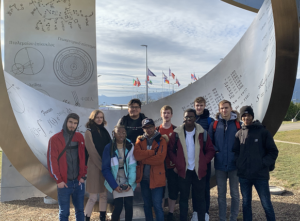
Year 13 visit to CERN: A level physicists embarked on a day trip to the Large Hadron Collider (LHC) at CERN in Geneva, where scientists discovered the Higgs-boson or ‘God particle’ in 2012. The LHC is the world’s largest and most powerful particle accelerator and consists of a 27 kilometre ring of superconducting magnets with a number of accelerating structures to boost the energy of the particles along the way. Analysis of the by-products of these collisions gives scientists good evidence of the structure of the subatomic world and the laws of nature governing it.
University of Leicester Visit: Chemists visit the Chemistry department of the University of Leicester once a year. They get a chance to undertake NMR, IR and Mass Spectroscopy experiments.
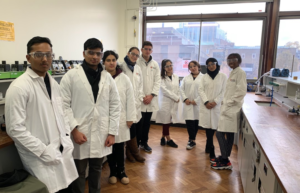
Year groups will also take part in visits to different educational sites to explore the applications of science including: London Science Museum, Woburn Safari Park, The National Space Centre, Tring Museum, Lockheed Martin, Biztech- Milton Keynes.
